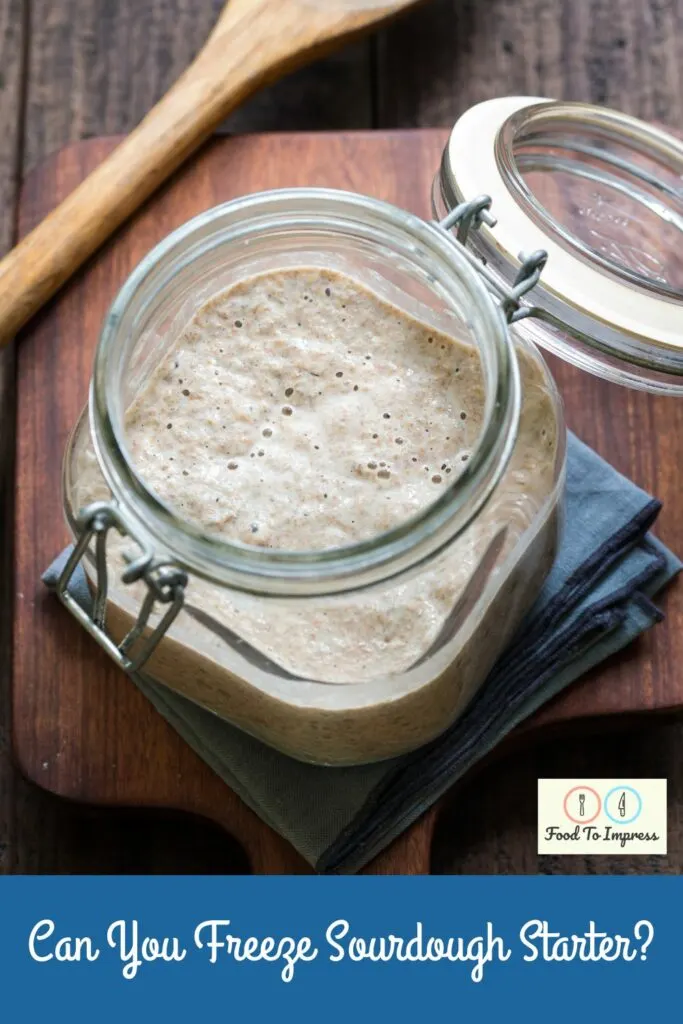Ah, the wonders of sourdough baking. With its complex flavors and the fascinating science behind the fermentation process, sourdough is a testament to the art of baking. A question that frequently arises among baking enthusiasts is, “Can you freeze sourdough starter?” Given the hard work and time invested in maintaining a good sourdough starter, it’s essential to know the best ways to preserve it.
The Short Answer to Freezing Sourdough Starter
Yes, you can freeze sourdough starter. Freezing is a great way to preserve your starter for long term storage without feeding it regularly. By following some simple steps, you can ensure that your frozen sourdough starter remains viable for future use.
Why Would You Freeze Sourdough Starter?
Can you freeze sourdough starter and why should you? One of the best things about having a sourdough starter is the opportunity to make various breads, like pizza dough or a whole loaf. However, maintaining an active sourdough starter requires a regular feeding schedule, which might not be feasible if you’re away for a long time or just don’t have much time to commit.

Freezing Process: Best Way to Store Your Starter
The freezing process is fairly straightforward. First, ensure that your starter is active. If it hasn’t been fed in a while, give it some fresh water and a cup of flour. Let it sit in a warm spot for a couple of days. When it’s bubbling and looking lively, it’s ready for the freezer.
- Preparing the Starter: Spread your active starter on parchment paper in a very thin layer. This technique is a little different than the first experiment most bakers try but proves effective. By spreading the starter thin, it freezes quickly, reducing the formation of ice crystals that can damage the lactic acid bacteria and wild yeast.
- Packing for Freezing: Once dried, break the sourdough starter into small pieces. Place these pieces in a freezer bag, removing as much air as possible to prevent freezer burn. Some bakers also use a ziplock bag, ensuring it’s sealed tight with a rubber band or plastic wrap. Another good idea is to use a mason jar or any airtight container, but ensure it’s not filled to the brim as frozen starter can expand.
Remember, you don’t need to freeze a huge batch of starter. Freezing smaller amounts is a convenient way. You can even use ice cube trays for this purpose, making it easy to thaw just the amount of starter you need at a later time.
For a more comprehensive guide on the freezing process, check out this post on How to Freeze Sourdough Dough.
Thawing Your Frozen Sourdough Starter
When you’re ready to bake, the next day remove your frozen sourdough starter from the freezer. Transfer it to a glass container and let it thaw at room temperature. Once thawed, feed your starter with lukewarm water and flour, letting it sit in a warm, dark place to re-activate.
Ensure to follow the right steps as the sourdough starter thaws, as this is crucial to wake up the natural yeast and bring your starter back to life. A detailed guide on sourdough and its nuances can be found on Sourdough Won’t Hold Its Shape.
What About Freezing Sourdough Bread or Dough?
Beyond the starter, sourdough bread freezes well too. If you’re wondering if sourdough bread dough can be frozen, the answer is a resounding yes. This is a fantastic way to always have fresh bread on hand. For detailed insights, you can refer to Can You Freeze Sourdough Bread?.
Conclusion: Freezing Sourdough Starter – A Great Option
Sourdough baking can seem intimidating at first, but once you get the hang of it, the results are well worth the effort. And knowing that you can freeze sourdough starter, giving you flexibility and ensuring you always have some on hand, is reassuring.
For more details on freezing and everything related to sourdough, I’d recommend perusing Freezing Yeast Guide. This guide, along with others linked, provide invaluable insights, ensuring you make the most of your sourdough baking journey.

